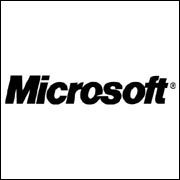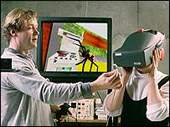Microsoft deserves some blame for the rapidly spreading Web virus
Published:
20 August 2003 y., Wednesday
Microsoft deserves some blame for the rapidly spreading Web virus -- but so do network administrators, ISPs, small businesses, and individual PC users. Compared to the images of sweaty Gothamites trudging across the Brooklyn Bridge in 95-degree heat during the massive power blackout, the MS Blaster worm now seems like a walk in the park.
Still, the latest worm to clog corporate networks and kludge the Net wreaked plenty of havoc in its own right. Internet security companies estimated losses from both downtime and wasted manhours in the hundreds of millions of dollars for U.S. companies. And Blaster-infected machines significantly impacted the Internet. The stream of bogus requests generated by the worm slowed DNS (domain name system) servers that act as the phone directories of the Internet. Compromised computers jammed up networks ranging from BMW in Germany to the Maryland Motor Vehicles Dept.
. Like the Slammer and CodeRed worms before it, Blaster targeted computers running Microsoft Windows 2000 and Windows XP operating systems. The worm carries a small program designed to exploit a chink in Redmond's digital armor and insert a file deep into the operating system in the Windows registry system. The registry is a database where the most basic rules that govern how a Windows machine behaves are stored and categorized.
Once Blaster inhabits the registry, it causes computers to restart without warning and to spew out thousands of connection requests per minute, in search of other machines to infect. The sheer volume of traffic caused enough digital noise to bog down networks.
Šaltinis:
businessweek.com
Copying, publishing, announcing any information from the News.lt portal without written permission of News.lt editorial office is prohibited.
The most popular articles
Software company announced new structure_ of it_s business.
more »
 Microsoft's Bing search engine will be the sole provider of search and paid search technology for all of Yahoo's websites. Yahoo will sell premium search ads for both companies.
more »
Microsoft's Bing search engine will be the sole provider of search and paid search technology for all of Yahoo's websites. Yahoo will sell premium search ads for both companies.
more »
 Thales UK today announces that its Cat III Instrument Landing System (ILS)1 has received UK approval for installation at Bournemouth Airport.
more »
Thales UK today announces that its Cat III Instrument Landing System (ILS)1 has received UK approval for installation at Bournemouth Airport.
more »
 Postbank customers can now pay their fuel bills at Shell service stations and withdraw cash as stations in Hamburg, Germany, have been converted to the new technology from Wincor Nixdorf International.
more »
Postbank customers can now pay their fuel bills at Shell service stations and withdraw cash as stations in Hamburg, Germany, have been converted to the new technology from Wincor Nixdorf International.
more »
 Japanese company Crescent has simulated a series of emergency situations that people may have to deal with in the workplace. By practicing with these simulations they can learn how to cope with a real-life crisis.
more »
Japanese company Crescent has simulated a series of emergency situations that people may have to deal with in the workplace. By practicing with these simulations they can learn how to cope with a real-life crisis.
more »
 The touchscreen device built on Google's Android platform equates to a bold attempt by HTC to take on Apple's popular iPhone - not by creating a copycat - but by building an attractive alternative.
more »
The touchscreen device built on Google's Android platform equates to a bold attempt by HTC to take on Apple's popular iPhone - not by creating a copycat - but by building an attractive alternative.
more »
 A devious piece of criminal coding that has been quietly at work in a clutch of ATMs at banks in Russia and Ukraine has recently been discovered.
more »
A devious piece of criminal coding that has been quietly at work in a clutch of ATMs at banks in Russia and Ukraine has recently been discovered.
more »
 In the person-to-person transfer business, text messaging is so 2008.
more »
In the person-to-person transfer business, text messaging is so 2008.
more »
 Bank Central Asia, one of Indonesia's largest banks, has partnered with Wincor Nixdorf International to rejuvenate its branch network.
more »
Bank Central Asia, one of Indonesia's largest banks, has partnered with Wincor Nixdorf International to rejuvenate its branch network.
more »
 What's cooking at Tokyo's International Food Machinery and Technology Expo? For this robo-chef, it's okonomiaki, Japanese pancakes.
more »
What's cooking at Tokyo's International Food Machinery and Technology Expo? For this robo-chef, it's okonomiaki, Japanese pancakes.
more »
 Taking attendance at Aoyama University used to be a chore, but no longer as the Japanese school is giving over 500 iPhones to students and faculty in an effort to enhance the classroom experience.
more »
Taking attendance at Aoyama University used to be a chore, but no longer as the Japanese school is giving over 500 iPhones to students and faculty in an effort to enhance the classroom experience.
more »